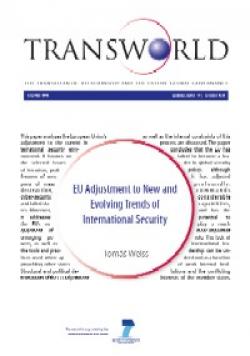EU Adjustment to New and Evolving Trends of International Security
This paper analyzes the European Union's adjustment to the current international security environment. It focuses on the selected issues of terrorism, proliferation of weapons of mass destruction, cyber-security, and failed states. Moreover, it addresses the EU's engagement of emerging powers, as well as the tools and practices used when approaching other states. Structural and political determinants of the EU adjustment as well as the internal constrains of this process are discussed. The paper concludes that the EU has failed to become a leader in global security policy, although it has adjusted profoundly, it commands considerable capabilities, and it has the potential to play a much more important role. The lack of international leadership can be understood as a function of weak internal institutions and the conflicting interests among the member states.
Paper produced within the framework of the IAI project Transworld.
-
Details
Roma, Istituto affari internazionali, 2013, 37 p. -
Issue
27
1. Introduction
2. The EU's Perception of Threats
3. The Development of the EU's Institutional Capacity
4. Adjustment to Evolving Security Threats and Domains
4.1 International Terrorism
4.2 WMD and Non-proliferation
4.3 Cyber Security
4.4 Weak States
5. Adjustment to Rising Powers
6. Adjustment to New Forms of War
7. Constrains to an Effective Adjustment Process
7.1 Member States' Views of the EU's Role in Security Policy
7.2 Conflicting Interests and Cultures Among Member States
7.3 Lack of Capabilities
8. Conclusion
References



